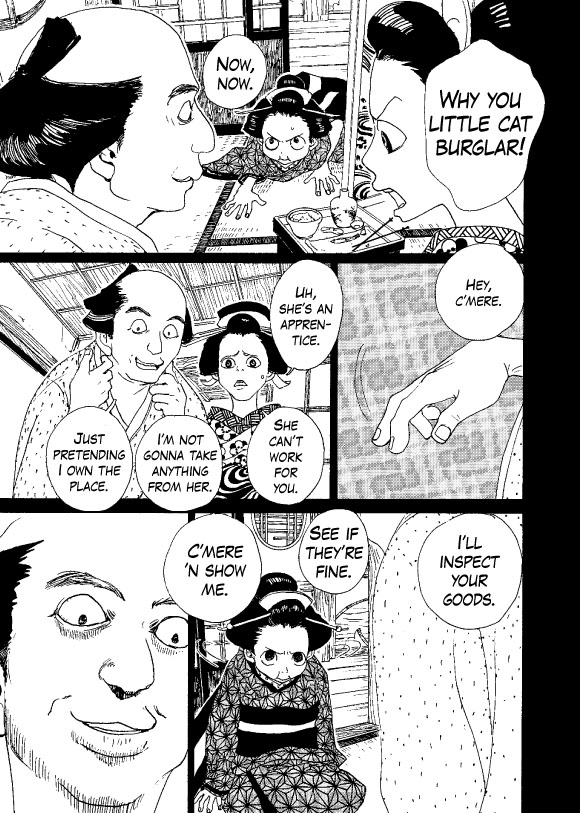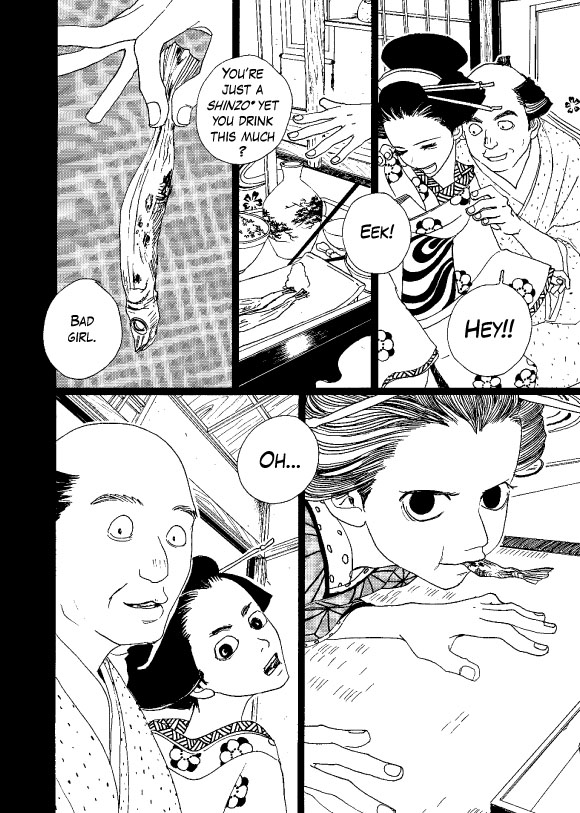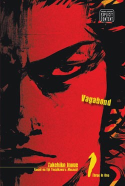By Kent Minami and Nozomu Tamaki. Released in Japan by Flex Comics, serialization ongoing in the online magazine Flex Comics Next. Released in North America by Seven Seas.
It has to be said, despite my ongoing joke that it succeeds because it has the word ‘vampire’ in the title, Seven Seas’ license of Dance in the Vampire Bund has proven to be one of their big successes. And as you’d expect when there is a big success, they likely decided to look around and see what else the artist had done that might pick up a similar audience in North America. After filtering out titles the author did that are too pornographic to really be licensed hre… you’re left with very little. Tamaki-san seems to specialize in various kinds of ‘adult’ work, a lot of it running in the borderline H magazines such as Takeshobo’s Vitamin. However, he also recently teamed up with an author to do an online serialization for Flex Comics, which seems to be more about action and religion that showing off the female body.
As readers who follow my site likely know, if I spend almost 200 words talking about the background to a manga rather than the manga itself, it means I’m already reaching for things I can say. But let’s get down to brass tacks. This series introduces us to Mitsuru, a young, pretty, and very emotional young man who is apparently also the key that will bring about the final apocalyptic war between heaven and hell. Protecting him are a team of angels, including Archangel Gabriel, aka Kyrie, his ‘older sister’ figure who recently disappeared, and Revy from Black Lagoon… um, sorry, I mean the Archangel Azrael. They are battling against a group of nasty demons, who want Mitsuru dead so they can bring about the war on their own terms.
The religious terms come thick and fast in this series, and may grow to be more relevant later, but honestly the war in heaven is really just a plot hook on which hangs a bunch of action and things blowing up. Gabriel/Kyrie can call down heavenly fire, the various demons can turn into slavering Cthulhu-like horrors, and of course everyone can fire guns. There’s even a few sequences of roof hopping. As for the other, non-action type of fan service, Gabriel and Azrael are seen nude often (especially Azrael, who walks around topless most of the time) and we are told they are androgynous and also have male members. It’s all just for show, of course – Mitsuru is far too innocent to bother thinking of taking advantage of anything, and spends most of this volume in a constant state of trauma in any case.
There were one or two moments in this manga I felt worked pretty well – the description of how humans let angels or demons possess them, and seeing it work on a sweet young thing at a coffee shop was well-handled and rather chilling. For the most part, though, I don’t think the first volume of this series really cohered all that well. There was a lot of theoretical plot tossed around – and we meet Uriel, a third Archangel who is (of course) in the body of a little girl – but for the most part it can be summed up as ‘Mitsuru gets menaced, then rescued, then lots of things blow up, get shot, or catch fire’. Hopefully it will gain more depth later on.

















